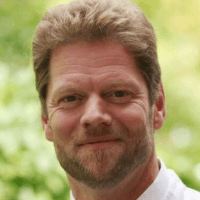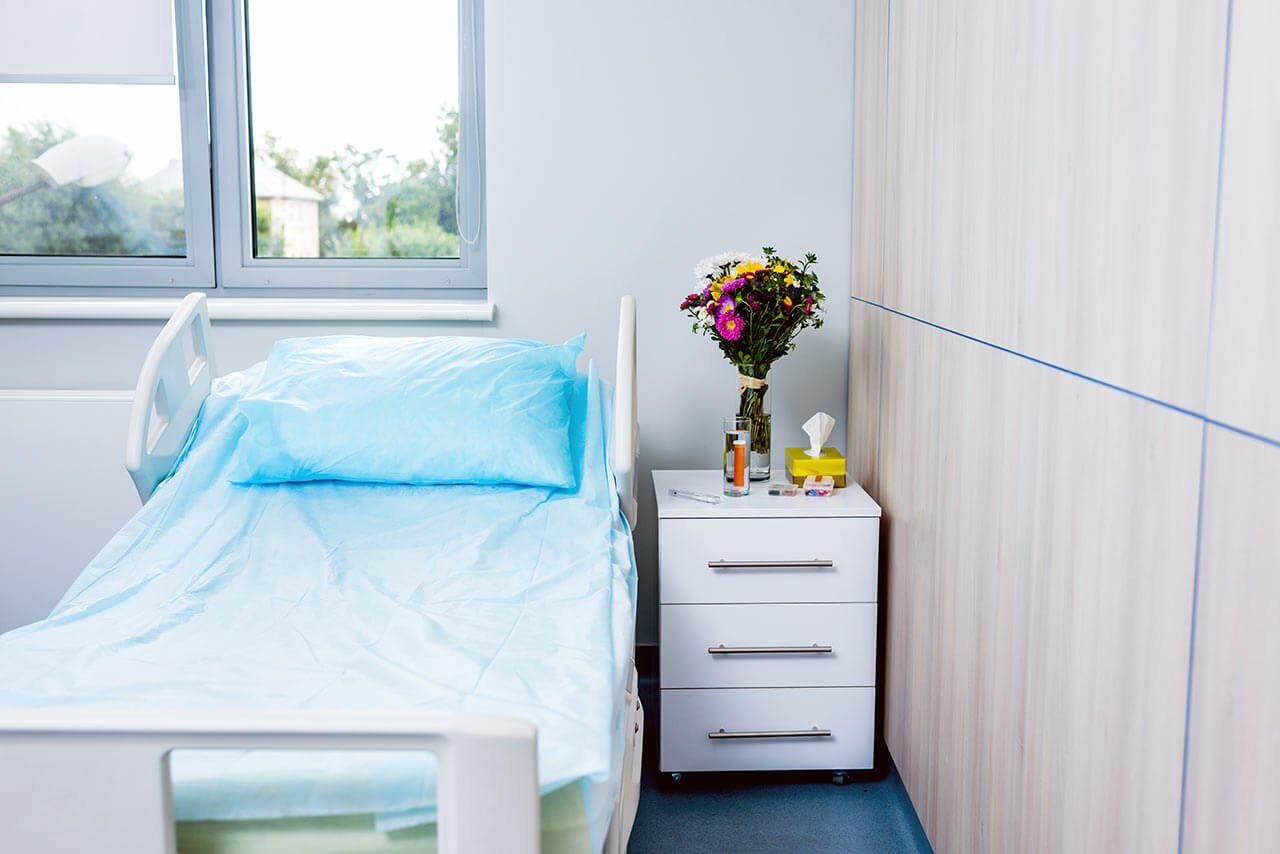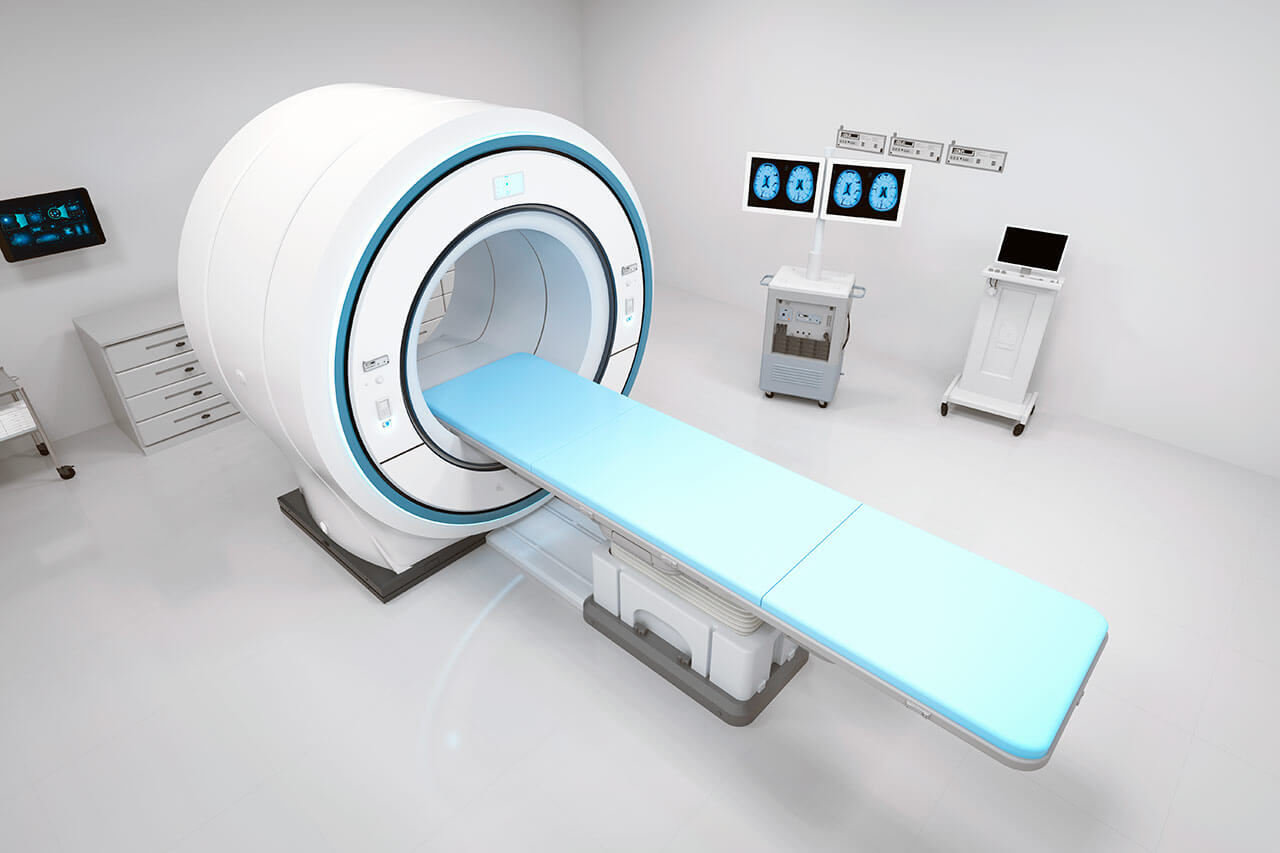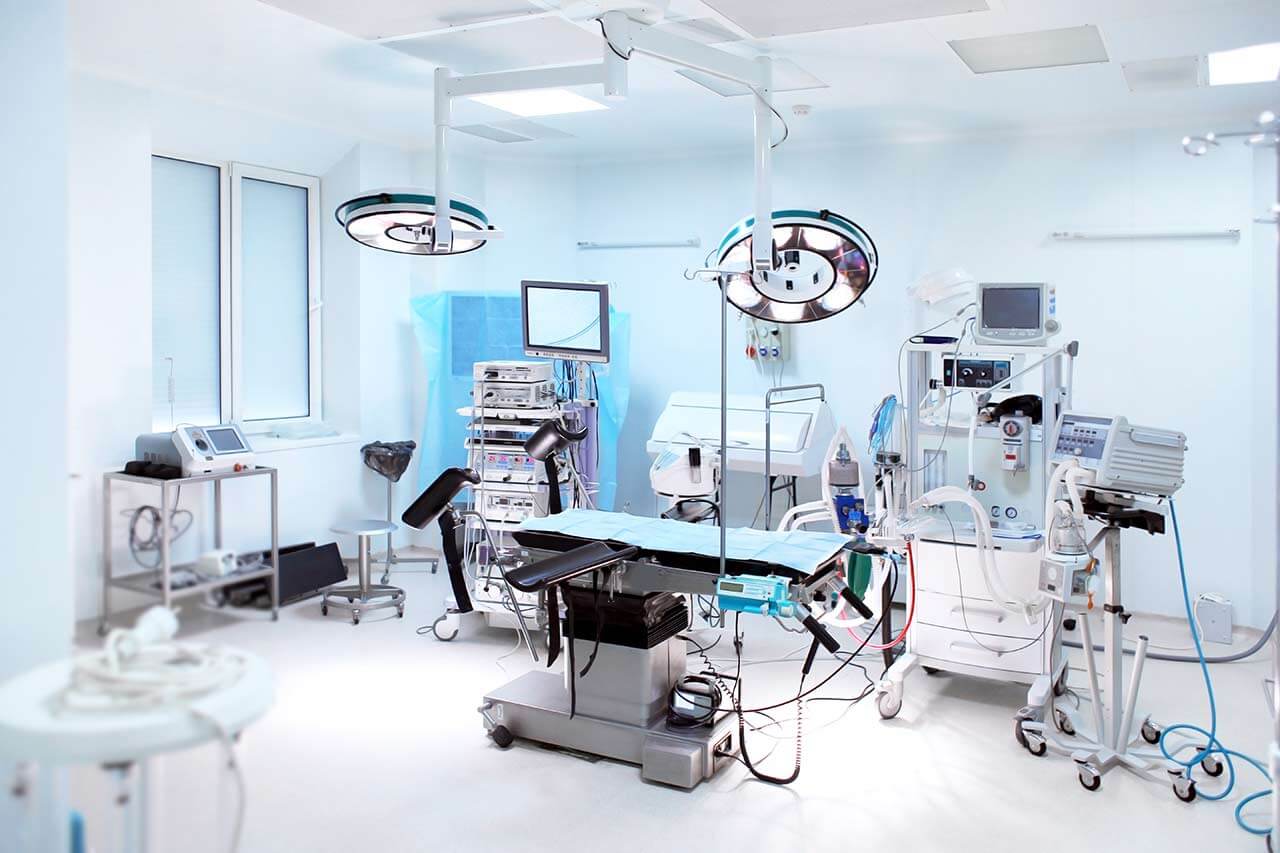
The program includes:
- Initial presentation in the clinic
- clinical history taking
- review of medical records
- physical examination
- laboratory tests:
- complete blood count
- general urine analysis
- biochemical analysis of blood
- inflammation indicators (CRP, ESR)
- indicators of blood coagulation
- tumor markers (CEA, CA19-9, CA125)
- individual plan of the chemotherapy
(the cost of medicines is included) - symptomatic treatment
- nursing services
- control examinations
- consultations of related specialists
- recommendations for further treatment
How program is carried out
During the first visit, the doctor will conduct a clinical examination and go through the results of previous laboratory tests and instrumental examinations. After that, you will undergo an additional examination, including laboratory assessment of liver and kidney function, ultrasound scan. Based on the received results, the doctor will elaborate the chemotherapy regimen. If necessary, related medical specialists will be involved in the elaboration of a treatment regimen (tumor board).
Chemotherapy is carried out as the day hospital procedure, without mandatory admission to the hospital. After the placement of a venous catheter, you will stay in a comfortable ward. An infusion system will be connected to the catheter, through which the required drug or a drug combination will be administered. All drugs are administered by intravenous drip, slowly, so the total duration of the infusion can be up to several hours. All this time, doctors and nurses will monitor your health condition closely.
After the course of chemotherapy, you will stay under medical supervision in the ward for a few more hours. If your general condition is good, your doctor will allow you to leave the hospital. You will receive the medical report with detailed recommendations regarding further treatment. In the future, you will be able to have a distant consultation with your attending physician and schedule the next course of chemotherapy, if necessary.
Required documents
- Medical records
- MRI/CT scan (not older than 3 months)
- Biopsy results (if available)
Service
You may also book:
 BookingHealth Price from:
BookingHealth Price from:
About the department
The Department of Oncology, Hematology and Palliative Care at the University Hospital Giessen UKGM offers all the options of modern medicine for the treatment of patients with the pathologies in these fields. Specialization covers the treatment of cancer of the internal organs, blood cancer, symptomatic treatment of progressive incurable diseases. Other focuses of the department are intensive care medicine and special pain therapy. To achieve successful and long-term results, the clinical practice is based on the use of effective classic and innovative treatment methods. The department is headed by Prof. Dr. Dr. med. Friedrich Grimminger.
The department's oncologists take care of the health of patients with malignant diseases of all organs. The department is part of the Interdisciplinary Cancer Center, within which all experts from related fields work for the benefit of patients. The individual and optimal treatment regimens are developed at interdisciplinary tumor boards. The treatment is carried out in accordance with national and international protocols of professional societies. The patients with terminal stages of the disease are provided with all the necessary palliative care measures, which helps to alleviate symptoms and improve the quality of life.
Another department’s priority is the treatment of patients with malignant diseases of the hematopoietic and lymphatic systems. Of particular interest is the treatment of malignant lymphomas, acute and chronic leukemias and myeloproliferative disorders. The spectrum is also complemented by therapy for blood-clotting disorders, such as immune thrombocytopenia.
The department's range of medical services includes:
- Diagnostics and treatment of oncological diseases of internal organs
- Respiratory system cancers
- Lung cancer
- Pleural cancer
- Gastrointestinal cancers
- Bowel cancer
- Rectal cancer
- Esophageal carcinoma
- Stomach cancer
- Pancreatic cancer
- Liver cancer
- Head and neck tumors
- Primary brain tumors
- Tumors of the lips, mouth and oropharynx
- Laryngeal cancer
- Thyroid cancer
- Gynecological tumors
- Breast cancer
- Ovarian cancer
- Uterine cancer
- Cervical cancer
- Urological tumors
- Prostate cancer
- Kidney cancer
- Bladder cancer
- Rare tumors
- Sarcomas
- Melanomas
- Respiratory system cancers
- Diagnostics and treatment of hematological diseases
- Acute lymphocytic leukemia
- Acute myeloid leukemia
- Amyloidosis
- Aplastic anemia
- Chronic lymphocytic leukemia
- Chronic myeloid leukemia
- Essential thrombocythemia
- Hairy cell leukemia
- Hemoglobinopathies
- Hemolytic anemia
- Hodgkin's lymphoma
- Immune thrombocytopenia
- Multiple myeloma
- Myelodysplastic syndrome
- Non-Hodgkin’s lymphoma
- Polycythemia vera
- Osteomyelosclerosis
- Palliative care for patients at the terminal stage of cancer aimed at alleviating symptoms and improving quality of life
- Other medical services
Curriculum vitae
Prof. Friedrich Grimminger studied medicine at the Justus Liebig University Giessen. He also completed a semester at the British Universities of Newcastle and Edinburgh (Chemistry and Biology). In 1989, he received his doctorate in Human Medicine, and in 1990 also received a diploma in Biology. Two years later, he had his habilitation in Human Medicine at the Justus Liebig University Giessen. In 1994, Prof. Grimminger had his board certification in Internal Medicine with a focus on Pulmonology, Oncology, Intensive Care, Palliative Care and Pain Therapy. He is a Honorary Professor at the Universities of Kent (Canterbury, UK) and Texas, USA.
Photo of the doctor: (c) UKGM - Universitätsklinikum Gießen und Marburg GmbH
About hospital
The University Hospital Giessen UKGM positions itself as an ultramodern medical facility with outstanding quality of medical care. The hospital presents almost all areas of medicine, ranging from ophthalmology to traumatology and dentistry. The priorities of the hospital’s activities include surgery, neurosurgery, oncology, nephrology with kidney transplantation and pediatric medicine.
The hospital is the third largest in Germany. Every year, more than 436,000 patients are treated in two locations of the hospital (Giessen and Marburg): 342,000 outpatients and 94,000 inpatients. The medical facility is the first privatized university hospital in the country.
The hospital staff is engaged not only in clinical practice, but also in research activities on the basis of the Faculty of Medicine at Justus Liebig University Giessen and Philipps University of Marburg, which contributes to a significant contribution to the development of modern medicine. During the many years of productive work on the development of new diagnostic and treatment methods, the hospital’s doctors managed to make many significant discoveries.
The hospital enjoys an excellent reputation in Germany and far beyond its borders. It managed to gain such credibility thanks to the high competence of doctors, advanced equipment, high-quality medical service and care.
Photo: (c) depositphotos
Accommodation in hospital
Patients rooms
The patients of the University Hospital Giessen UKGM live in comfortable rooms made in a modern design and light colors. Each room has an ensuite bathroom with shower and toilet. The standard room furnishing includes an automatically adjustable bed, a bedside table, a wardrobe, a table and chairs for receiving visitors, a TV, a telephone.
Meals and Menus
The patients of the hospital are offered balanced, healthy three meals a day: buffet breakfast, lunch and dinner. The private kitchen, certified according to DIN EN ISO 9001:2000, is responsible for providing patients with food and drinks.
If for some reason you do not eat all foods, you will be offered an individual menu. The hospital also has a cafeteria with a large assortment of hot and cold drinks, snacks and desserts.
Further details
Standard rooms include:
Television
All patient rooms are equipped with TV sets. If you have some questions, please contact medical personnel.
Religion
Religious services can be provided upon request.
Accompanying person
During an inpatient program, an accompanying person can stay with you in a patient room or in a hotel of your choice.
Hotel
During the outpatient program, you can stay at the hotel of your choice. Our managers will help you to choose the most suitable option.




